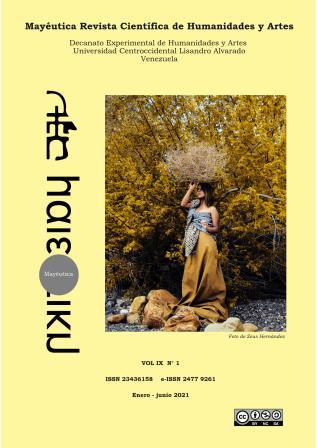Ciudadanía y desarrollo humano: experiencias de la delegación de modelos de Naciones Unidas en el Instituto La Salle de Barquisimeto
Palabras clave:
ciudadanía, valores cívicos, democracia, desarrollo humano, Instituto La SalleResumen
Tuvimos como objetivo principal comprender los significados que los estudiantes miembros de la “Delegación de Modelos de Naciones Unidas de la Unidad Educativa Instituto La Salle Barquisimeto” le atribuyen a los valores cívicos para la construcción de ciudadanía desde el enfoque del Desarrollo Humano. Para ello, se tomó como basamento teórico la obra del filósofo indio Amartya Sen acerca de la potenciación de capacidades (libertades para ser y hacer) de las personas, así como las definiciones de ciudadanía y valores cívicos de la filósofa española Adela Cortina. El estudio tiene un abordaje cualitativo y se usaron las técnicas del grupo focal, la entrevista semiestructurada y la revisión documental. Como resultado, se identificaron dos aspectos vinculados al proceso de construcción de ciudadanía en la filosofía lasallista: la calidad humana y el sentido de pertenencia. Los estudiantes reconocieron aspectos significativos de la formación del programa Naciones Unidas para Todos: el discurso, la argumentación, la crítica y el cultivo de la amistad. La valoración de la democracia y la ciudadanía guarda una relación estrecha con los conceptos abordados.
Descargas
Citas
Cortina, A. (1997). Ciudadanos del Mundo: Hacia una teoría de la ciudadanía. Alianza Editorial, S.A.
Gonzales, E. (2013). Acerca del estado de la cuestión o sobre un pasado reciente en la investigación cualitativa con enfoque hermenéutico. Unipluri/versidad.13(1).6063.
http://bibliotecadigital.udea.edu.co/bitstream/10495/3313/1/GonzalesElvia_2013_estadocuestioninvestigacioncualitativa.pdf
Hermanos de las Escuelas Cristianas. (s.f.). Propuesta educativa lasallista Venezuela. BBVA Provincial.
Martínez Miguélez, M. (2006). Validez y confiabilidad en la metodología cualitativa. Paradígma. 27(2), 0733.http://ve.scielo.org/scielo.php?script=sci_arttext&pid=S101122512006000200002&lng=es&tlng=es
Nussbaum, M. (2005). El cultivo de la humanidad: una defensa clásica de la reforma en la educación liberal. Paidós.
Programa de Naciones Unidas para el Desarrollo. (2010). Nuestra Democracia. Fondo de Cultura Económica. latinamerica.undp.org/content/rblac/es/home/library/democratic_governance/nuestra_democracia.html
Sandoval, C. (1996). Investigación Cualitativa. ICFES. https://panel.inkuba.com/sites/2/archivos/manual%20colombia%20cualitativo.pdf
Sen, A. (2000). Desarrollo y Libertad. Planeta.
Organización de las Naciones Unidas para la Educación, la Ciencia y la Cultura. (1997). Educación para un Futuro Sostenible. https://es.unesco.org/themes/educaciondesarrollosostenible.
Valles, M. (1999). Técnicas Cualitativas de Investigación Social. Reflexión Metodológica y Practica Profesional. Editorial Síntesis.
Publicado
Cómo citar
Número
Sección

Está obra está bajo licencia Creative Commons Attribution-NonCommercial-ShareAlike 4.0 International License.

Derechos del/de autor/es a partir del año de publicación
Esta obra está bajo la licencia:
Creative Commons Reconocimiento-NoComercial-CompartirIgual 4.0 Internacional (CC BY-NC-SA 4.0)
Las opiniones expresadas por los autores no necesariamente reflejan la postura del editor de la publicación ni de la UCLA. Se autoriza la reproducción total o parcial de los textos aquí publicados, siempre y cuando se cite la fuente completa y la dirección electrónica de esta revista. Los autores(as) tienen el derecho de utilizar sus artículos para cualquier propósito siempre y cuando se realice sin fines de lucro. Los autores(as) pueden publicar en internet o cualquier otro medio la versión final aprobada de su trabajo, luego que esta ha sido publicada en esta revista.




